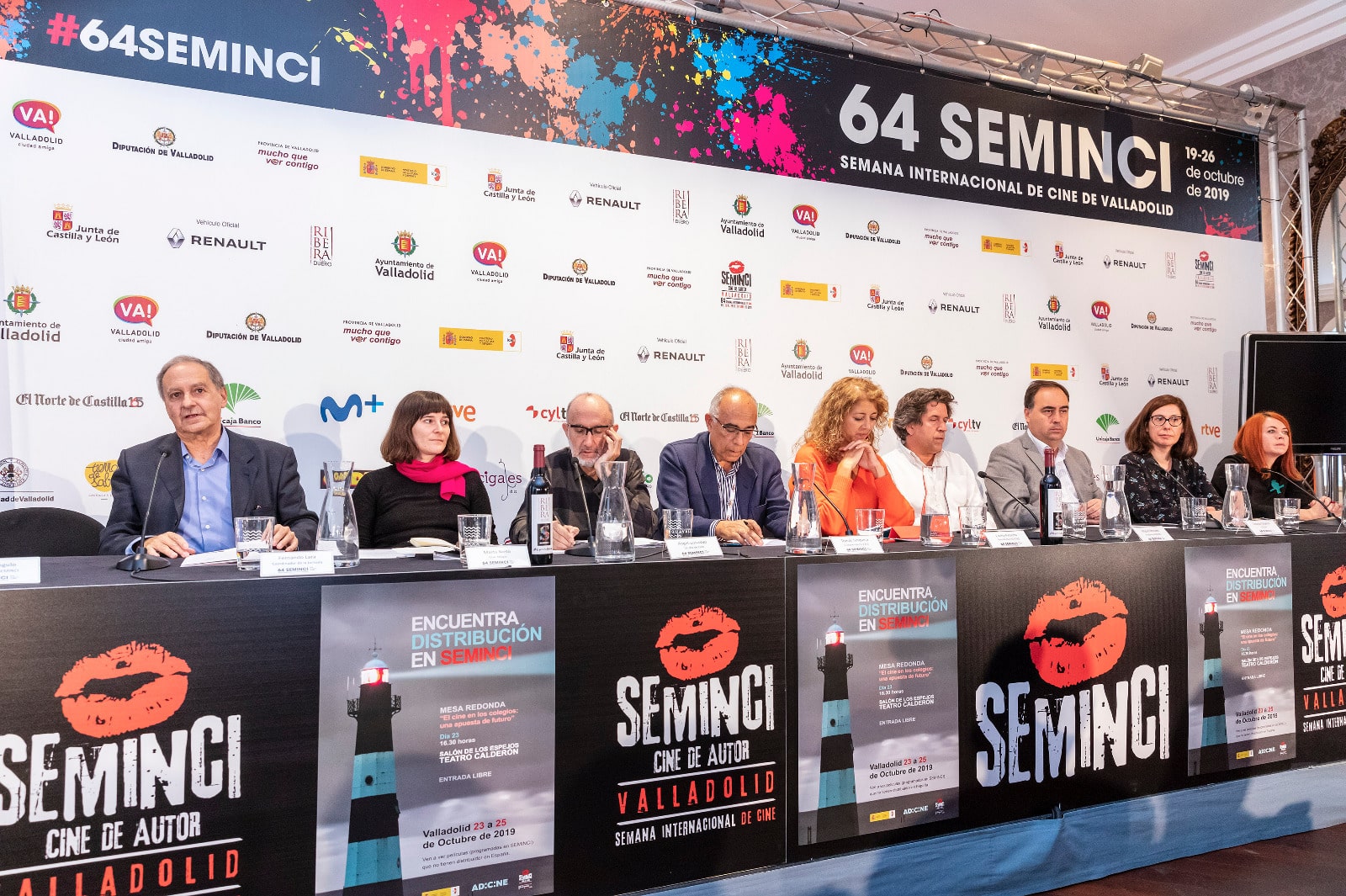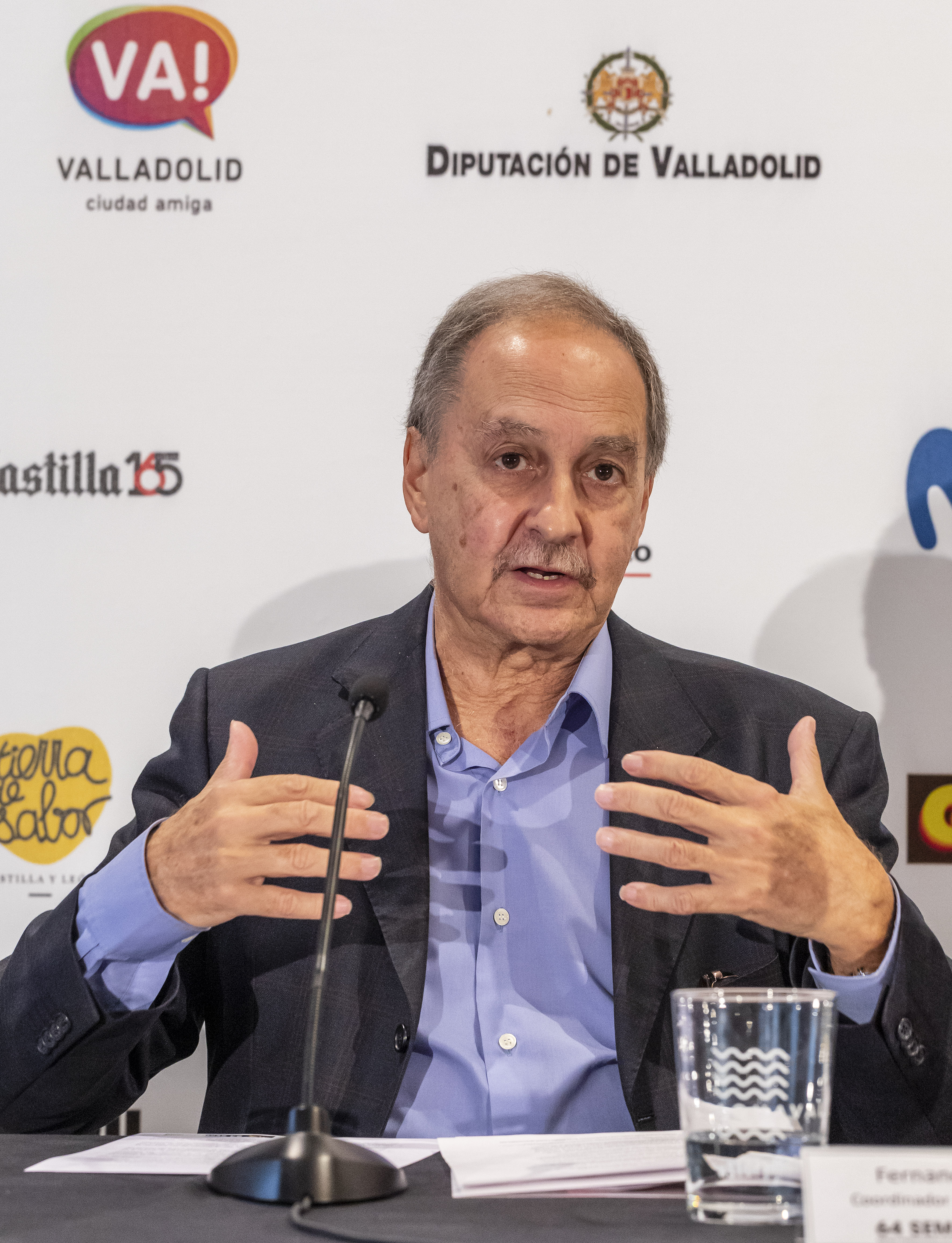
Participants of the forum “Cinema in schools: a commitment to the future”
23/10/2019.- The 64th edition of the Valladolid International Film Festival held today (Wednesday, 22 October) a full-day event including discussion panels and a round table where about 50 participants (education professionals, film distributors and exhibitors, and film rights managers) exchanged their views on the importance of introducing cinema in the classroom and including the study of this art form in the school curriculum.
After the panel sessions, a round table took place where the day’s conclusions were presented with the participation of the event’s coordinator Fernando Lara (former director of Seminci and of Spain’s Institute for the Audiovisual Arts and Sciences) and of representatives from the several sectors involved: Carlos Antón, on behalf of film rights management entity EGEDA; Estela Artacho, the president of Spain’s Federation of Film Distributors FEDICINE; Helena Fernández, a member of Aulafilm, a cultural and educational project and a social entrepreneurship initiative; Ángel Gonzalvo, the creator of “Un día de cine”, a programme launched by Aragón’s Regional Ministry of Education; Tomás Junquero, the deputy president of the Spanish Federation of Film Entrepreneurs FECE; Miguel Morales, a representative for Adicine, the association of independent film distributors; Marta Nieto, a member of Drac Magic , an initiative dedicated to the study and dissemination of culture; and Marta Tarín, from the Academy of Film Foundation.

The round table, which encouraged the participation of educational authorities, media and education professionals, included the presentation of the event’s conclusions , now available from the Festival’s website. One by one, the speakers contributed their position in this matter, and all emphasised the importance of bringing cinema into the classroom and institutionalising the study of film as an art form and a cultural manifestation.
Tomás Junquero explained the work done at FECE and the educational projects it espouses, while stressing the educational value of encouraging movie-going as a social act:“you have to take the kids out of school to see movies in the movie theatres”.
On behalf of independent film distributors, Miguel Morales referred in positive terms to the existence of “more than 100 initiatives launched in order to bring cinema into the classroom” and acknowledged the forum’s success in “bringing us together and encouraging our collaboration in order to attain a common goal.”
Fedicine’s Estela Artacho, in turn, insisted on the “importance of protecting audiovisual rights”, while EGEDA’s Carlos Antón concluded that the inclusion of cinema in the school curriculum “is highly necessary, both for the students and for the industry.”
Marta Tarín, the Film Academy’s representative, stressed the key role “played by this gathering in making progress around this issue” and moreover explained some of the work carried out by her institution in supporting the approach to cinema as a subject of cultural study. On the other hand, the representatives of some of the social projects invited to participate in the discussion (like Drac Magic, Un día de cine or Aulafilm)-highlighted the need to institutionalise the study of cinema, since, as pointed out by Ángel Gonzalvo (Un día de cine) , “you can’t love something you don’t know.”
The round table concluded with the input from the floor as well as the participation of several relevant personalities in the area of film education like the directors of ESCAC and ECAM, respectively the public-funded film schools of Catalonia and Madrid.



























![Logo Foro Cultural de Austria Madrid[1]](https://www.seminci.com/wp-content/uploads/2024/09/Logo-Foro-Cultural-de-Austria-Madrid1-300x76.jpg)








